目录
- 1 DelimiterBasedFrameDecoder介绍
- 2 Base64编解码
- 3 DelimiterBasedFrameDecoder结合Base64编解码案例
1 DelimiterBasedFrameDecoder介绍
前面介绍了LineBasedFrameDecoder,其以换行符\n或者\r\n作为依据,遇到\n或者\r\n都认为是一条完整的消息。
而DelimiterBasedFrameDecoder与LineBasedFrameDecoder类似,只不过更加通用,允许我们指定任意特殊字符作为分隔符。我们还可以同时指定多个分隔符,如果在请求中发的确有多个分隔符,将会选择内容最短的一个分隔符作为依据。 例如:
+--------------+ | ABC\nDEF\r\n | +--------------+
如果我们指定分隔符为\n,那么将会解码出来2个消息
+-----+-----+ | ABC | DEF | +-----+-----+
如果我们指定\r\n作为分隔符,那么只会解码出来一条消息
+----------+ | ABC\nDEF | +----------+
DelimiterBasedFrameDecoder提供了多个构造方法,最终调用的都是以下构造方法:
public DelimiterBasedFrameDecoder(
int maxFrameLength, boolean stripDelimiter, boolean failFast, ByteBuf... delimiters)
其中:
maxLength:
表示一行最大的长度,如果超过这个长度依然没有检测到\n或者\r\n,将会抛出TooLongFrameException
failFast:
与maxLength联合使用,表示超过maxLength后,抛出TooLongFrameException的时机。如果为true,则超出maxLength后立即抛出TooLongFrameException,不继续进行解码;如果为false,则等到完整的消息被解码后,再抛出TooLongFrameException异常。
stripDelimiter:
解码后的消息是否去除分隔符。
delimiters:
分隔符。我们需要先将分割符,写入到ByteBuf中,然后当做参数传入。
需要注意的是,netty并没有提供一个DelimiterBasedFrameDecoder对应的编码器实现(笔者没有找到),因此在发送端需要自行编码,添加分隔符。
2 Base64编解码
对于以特殊字符作为报文分割条件的协议的解码器,如:LineBasedFrameDecoder、DelimiterBasedFrameDecoder。
都存在一个典型的问题,如果发送数据当中本身就包含了分隔符,怎么办?如:我们要发送的内容为:
hello1\nhello2\nhello3\n
我们需要把这个内容整体当做一个有效报文来处理,而不是拆分成hello1、hello2、hello3。一些同学可能想到那可以换其他的特殊字符,但是如果内容中又包含你想指定的其他特殊字符怎么办呢?
因此我们通常需要发送的内容进行base64编码,base64中总共只包含了64个字符。
我们可以指定这64个字符之外的其他字符作为特殊分割字符;而接收端对应的进行base64解码,得到对应的原始的二进制流,然后进行处理。Netty提供了Base64Encoder/Base64Decoder来帮我们处理这个问题。需要注意的是,只需要对内容进行base64编码,分隔符不需要编码。
3 DelimiterBasedFrameDecoder结合Base64编解码案例
Server端:DelimiterBasedFrameDecoderServer
public class DelimiterBasedFrameDecoderServer {
public static void main(String[] args) throws Exception {
EventLoopGroup bossGroup = new NioEventLoopGroup(); // (1)
EventLoopGroup workerGroup = new NioEventLoopGroup();
编程 try {
jsServerBootstrap b = new ServerBootstrap(); // (2)
b.group(bossGroup, workerGroup).channel(NIOServerSocketChannel.class) // (3)
.childHandler(new ChannelInitializer<SocketChannel>() { // (4)
@Override
public void initChannel(SocketChannel ch) throws Exception {
ByteBuf delemiter= Unpooled.buffer();
delemiter.writeBytes("&".getBytes());
//先使用DelimiterBasedFrameDecoder解码,以&作为分割符
ch.pipeline().addLast(new DelimiterBasedFrameDecoder(1024, true, true,delemiter));
//之后使用Base64Decoder对数据进行解码,得到报文的原始的二进制流
ch.pipeline().addLast(new Base64Decoder());
//对请求报文进行处理
ch.pipeline().addLast(new ChannelInboundHandlerAdapter() {
@Override
public void channelRead(ChannelHandlerContext ctx, Object msg) throws Exception {
if (msg instanceof ByteBuf) {
ByteBuf packet = (ByteBuf) msg;
System.out.println(
php new Date().toLocaleString() + ":" + packet.toString(Charset.defaultCharset()));
}
}
});
}
});
// Bind and start to accept incoming connections.
ChannelFuture f = b.bind(8080).sync(); // (7)
System.out.println("DelimiterBasedFrameDecoderServer Started on 8080...");
f.channel().closeFuture().sync();
} finally {
workerGroup.shutdownGracefully();
bossGroup.shutdownGracefully();
}
}
}
Server接受到的数据,首先我们要去除分隔符,然后才能进行base64解码。因此首选我们添加了DelimiterBasedFrameDecoder根据&处理粘包办包问题,之后使用Base64Decoder进行解码,最后通过一个自定义ChannelInboundHandler打印请求的数据。client端:DelimiterBasedFrameDecoderClient
public class DelimiterBasedFrameDecoderClient {
public static void main(String[] args) throws Exception {
EventLoopGroup workerGroup = new NioEventLoopGroup();
try {
Bootstrap b = new Bootstrap(); // (1)
b.group(workerGroup); // (2)
b.channel(NioSocketChannel.class); // (3)
b.option(ChannelOption.SO_KEEPALIVE, true); // (4)
b.handler(new ChannelInitializer<SocketChannel>() {
@Override
public void initChannel(SocketChannel ch) throws Exception {
ch.pipeline().addLast(new ChannelInboundHandlerAdapter() {
//在于server建立连接后,即发送请求报文
public void channelActive(ChannelHandlerContext ctx) {
//先对要发送的原始内容进行base64编码
ByteBuf content = Base64.encode(Unpooled.buffer().writeBytes("hello&tianshouzhi&".getBytes
()));
//之后添加分隔符
ByteBuf req = Unpooled.copiedBuffer(content);
req.writeBytes("&".getBytes());
fMSeKnhtvA ctx.writeAndFlush(req);
}
});
}
});
// Start the client.
ChannelFuture f = b.connect("127.0.0.1",8080).sync(); // (5)
// Wait until the connection is closed.
f.channel().closeFuture().sync();
} finally {
workerGroup.shutdownGracefully();
}
}
}
在编写client端代码时我们先对原始内容进行base64编码,然后添加分割符之后进行输出。
需要注意,虽然Netty提供了Base64Encoder进行编码,这里并没有直接使用,如果直接使用Base64Encoder,那么会对我们输出的所有内容进行编码,意味着分隔符也会被编码,这显然不符合我们的预期,所以这里直接使用了Netty提供了Base64工具类来处理。
如果一定要使用Base64Encoder,那么代码需要进行相应的修改,自定义的ChannelInboundHandler只输出原始内容,之后通过Base64Encoder进行编码,然后需要额外再定义一个ChannelOutboundHandler添加分隔符,如:
ch.pipeline().addLast(new ChannelOhttp://www.devze.comutboundHandlerAdapter() {
@Override
public void write(ChannelHandlerContext ctx, Object msg, ChannelPromise promise) throws Exception {
if(msg instanceof ByteBuf){
((ByteBuf) msg).writeBytes("&".getBytes());
}
}
});
ch.pipeline().addLast(new Base64Encoder());
ch.pipeline().addLast(new ChannelInboundHandlerAdapter() {
//在于server建立连接后,即发送请求报文
public void channelActive(ChannelHandlerContext ctx) {
ByteBuf req = Unpooled.buffer().writeBytes("hello&tianshouzhi&".getBytes());
ctx.writeAndFlush(req);
}
});
上述两种方案效果是等价的。
当我们先后启动server和client后,会看到server端控制台输出:
DelimiterBasedFrameDecoderServer Started on 8080...
2018-9-8 13:56:32:hello&tianshouzhi&
说明经过base64编码后,我们的请求中可以包含分隔符作为内容。
如果我们将base64编解码相关逻辑去掉,你将会看到的输出是:
DelimiterBasedFrameDecoderServer Started on 8080...
2018-9-8 14:13:31:hello2018-9-8 14:13:31:tianshouzhi
也就是说,原始内容也被误分割了,解码失败,读者可以自行验证。
到此这篇关于Netty中的DelimiterBasedFrameDecoder使用方法详解的文章就介绍到这了,更多相关DelimiterBasedFrameDecoder使用方法内容请搜索编程客栈(www.devze.com)以前的文章或继续浏览下面的相关文章希望大家以后多多支持编程客栈(www.devze.com)!

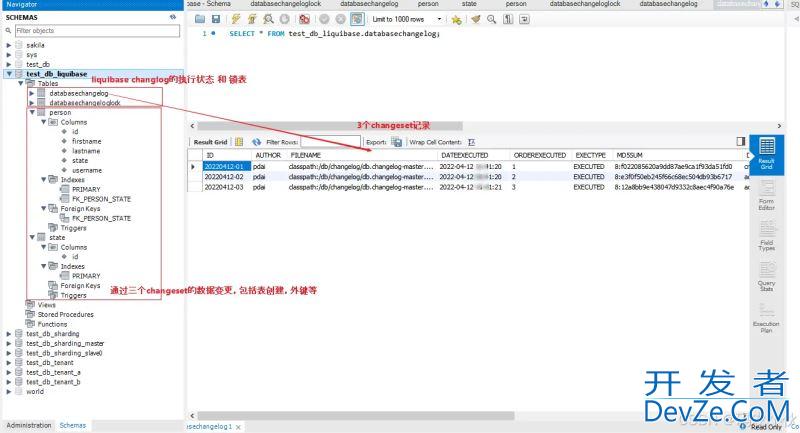

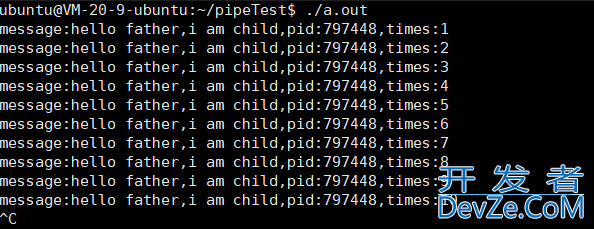
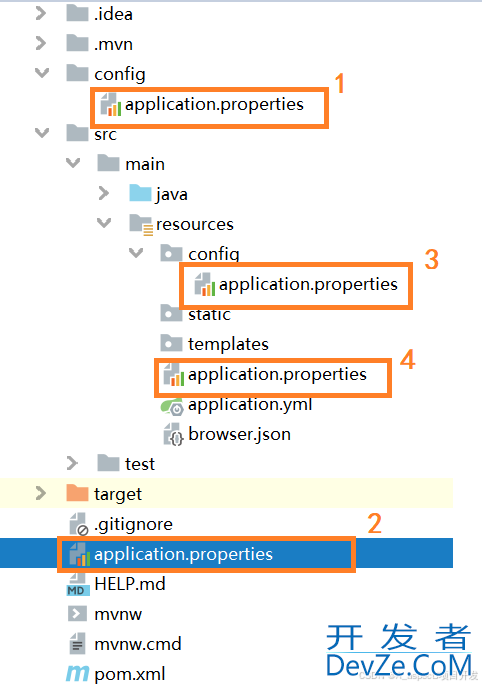
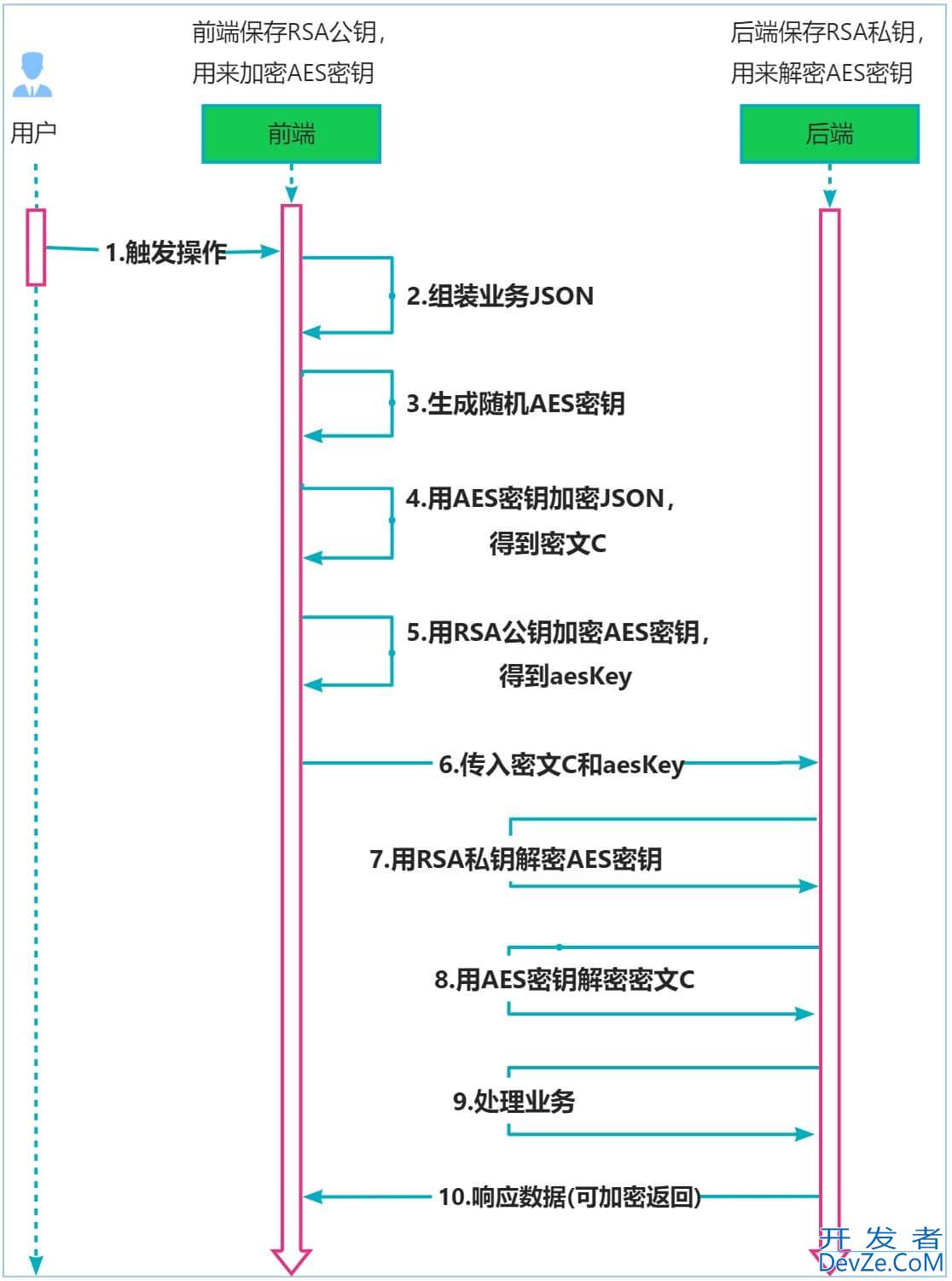
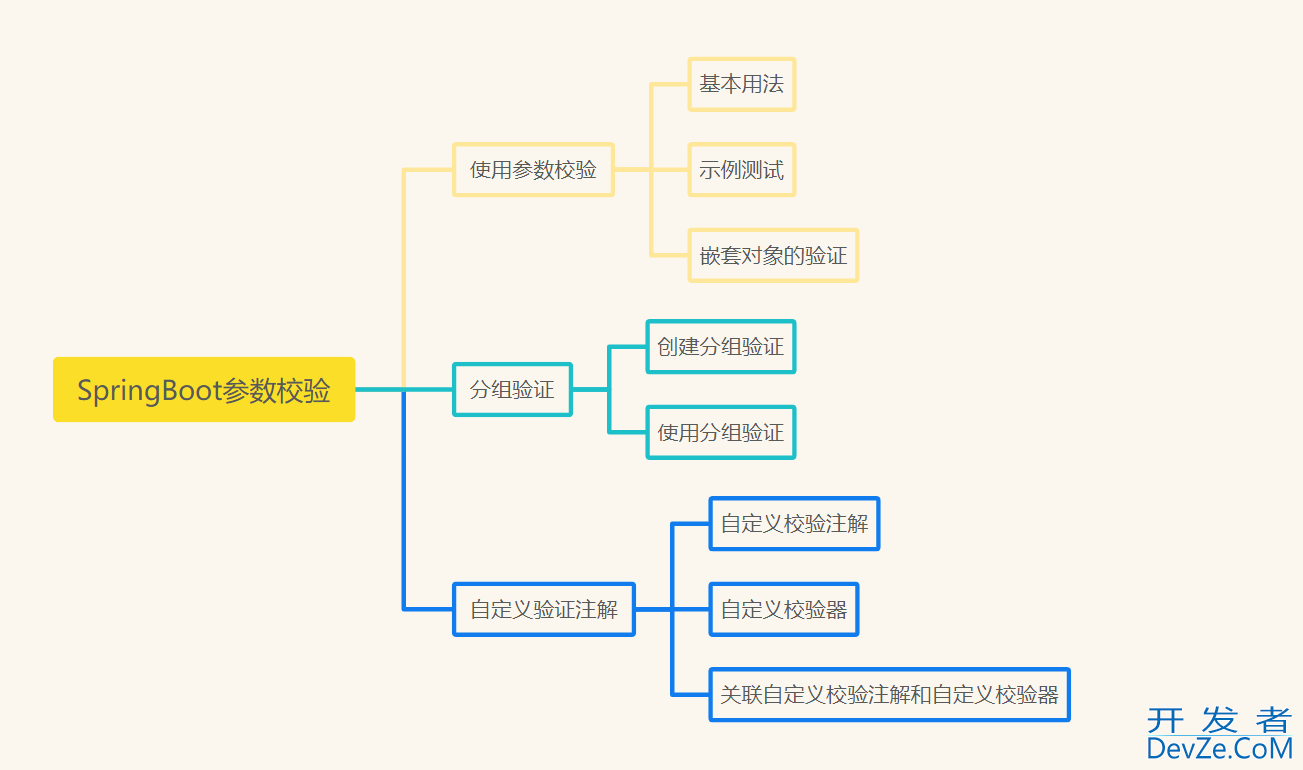

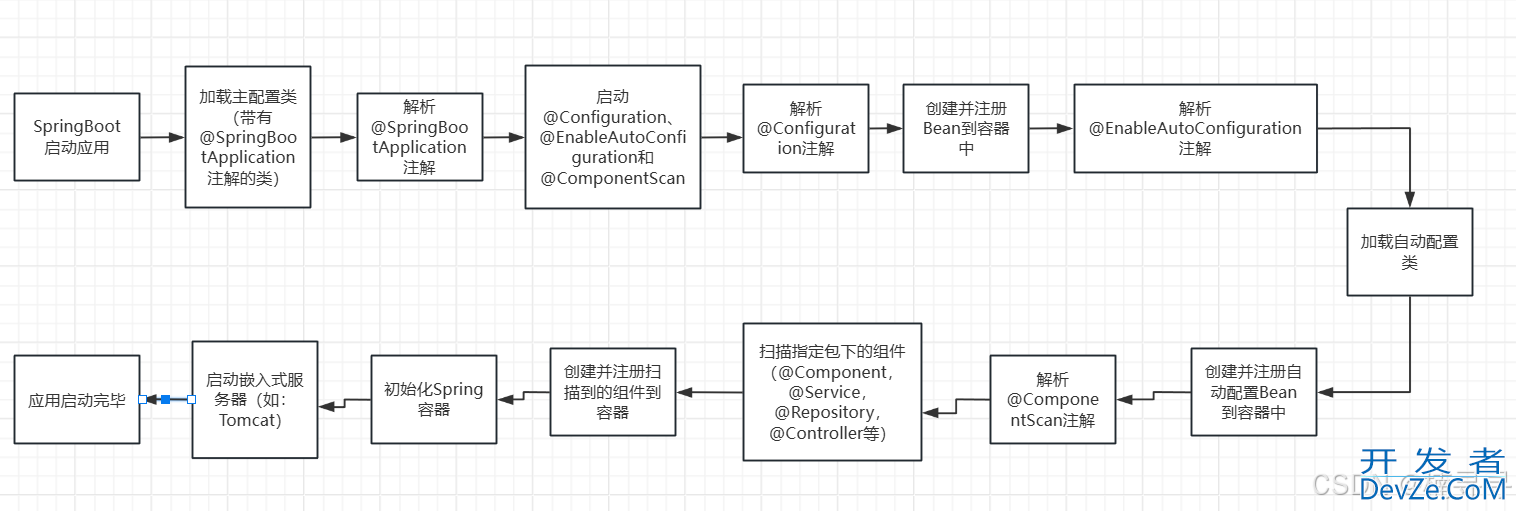
 加载中,请稍侯......
加载中,请稍侯......
精彩评论